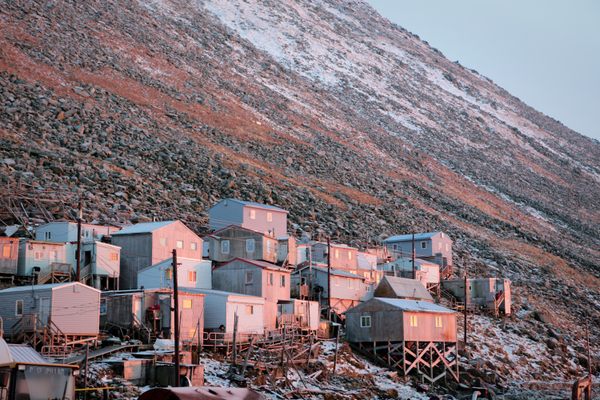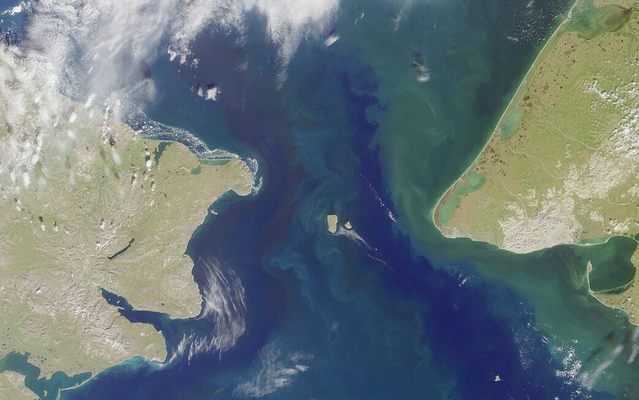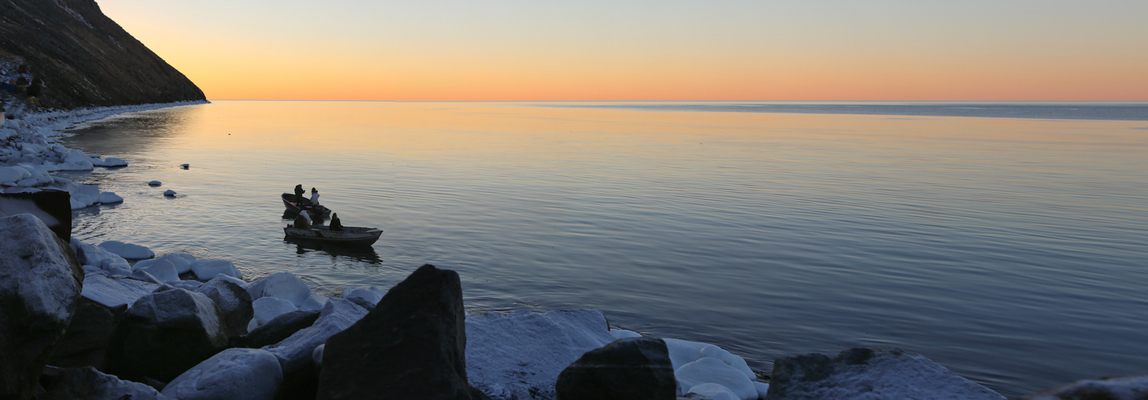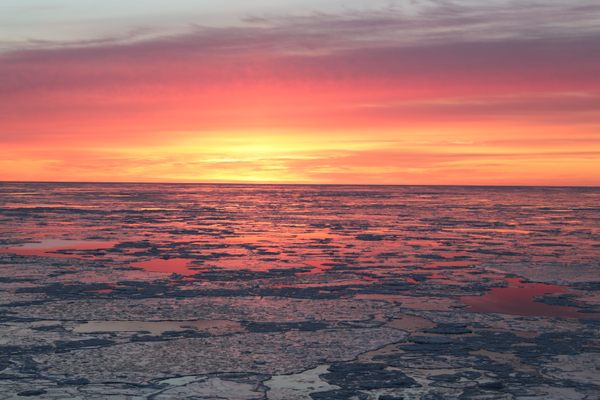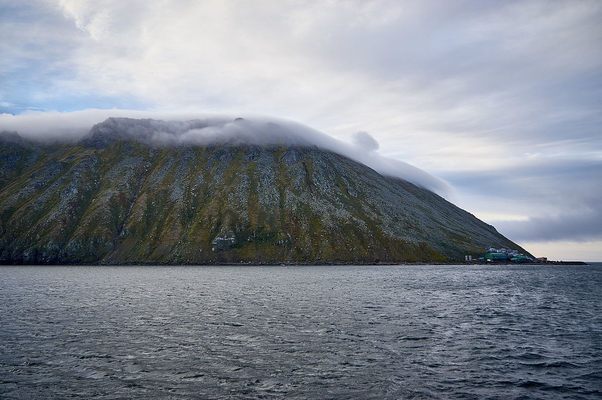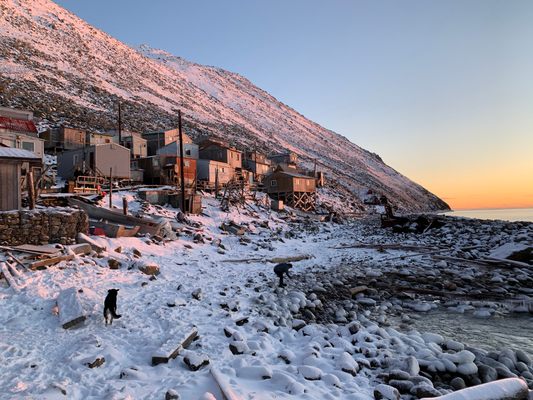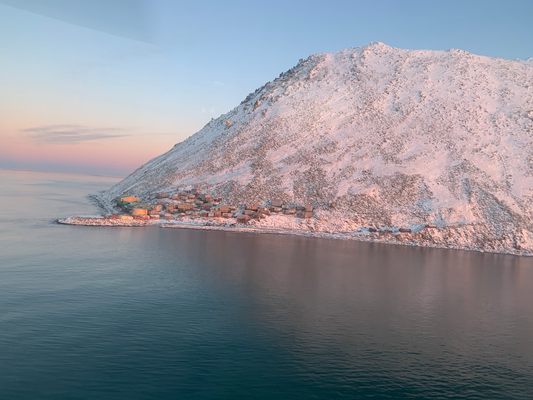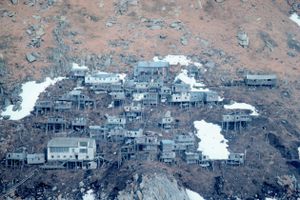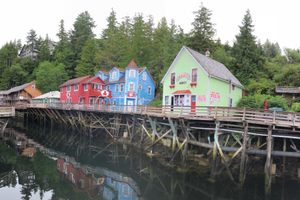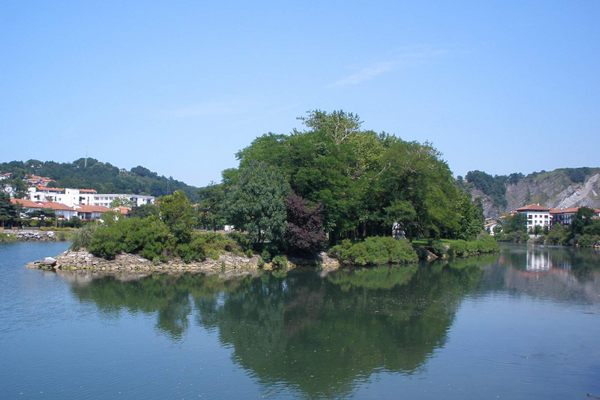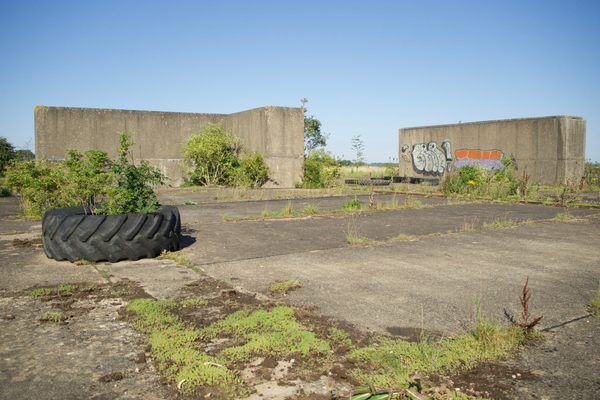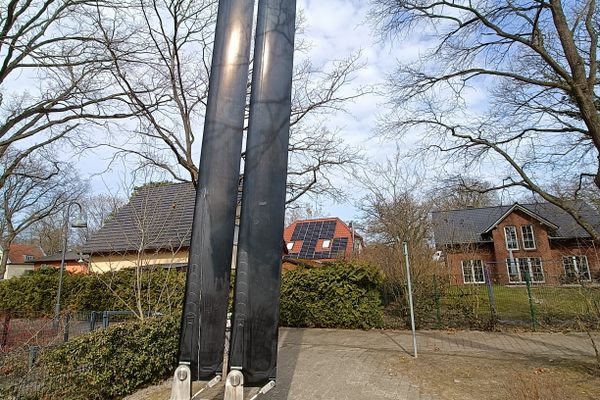About
Alaska's Little Diomede Island (or "Ignaluk" in the Native language) is a small, isolated, mesa-shaped island of rock and grassy hummocks in the middle of the Bering Strait, accessible by air or boat only.
For starters, the nearest land mass is Russia: The slightly larger Big Diomede Island is just over two miles away, within eyeshot of the Alaskan villagers. Stranger still, the International Dateline runs right between the two Diomedes, which means about a mile-and-a-half to the west of Little Diomede lies tomorrow—Big Diomede is 21 hours ahead. During the Cold War, tensions rose along this chilly border; travel between the two islands was forbidden, and the boundary was nicknamed the "Ice Curtain."
Located 16 miles off mainland Alaska and marked by inhospitable weather, Little Diomede Island may well be the most isolated, remote, and self-sufficient community in the United States. The 2.8-square-mile island is home to less than 100 residents, the vast majority of which are Alaska Natives living a largely traditional lifestyle. Though some food and supplies are helicoptered onto the island each year, the villagers continue to live off the land and sea as they have for thousands of years.
There are no hotels or cafes on the island, just one small tribal store, a post office, and public school. Few of the homes, which are clustered together on the rocky hillside by the shore, have running water, and winter temperatures hover around a frigid 6 to 10 degrees Fahrenheit. The water freezes in the winter, so villagers carve a runway into the ice for the supply-carrying bush planes to land.
Climate change is putting the residents of Ignaluk at risk—their traditional hunting grounds on the sea ice are disappearing with a warming Arctic.
Related Tags
Know Before You Go
Village permission should be sought (via letter) prior to visiting along with arrangements for transportation, housing and food. Self sufficiency is advised. Transportation to and from the island is restricted and expensive.
Published
January 18, 2019
